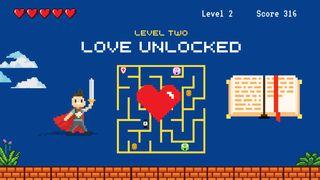Love WellSample

A Great Debt
Some of us train for years, like Simon, to find ways to bury our sin. Control becomes an effective means of shame management. We hold people at a distance and slowly, with limits and conditions, decide who is allowed in.
Legalists are not familiar with intimacy. They live with a false sense of security, one that is developed by judging other people and elevating themselves. A Pharisee remains hyper-focused on behavior; this is how he keeps himself and others from exploring his heart. The more fault he can find in others, the easier it is to live in his delusional world.
Too often people are caught up in moralism, “constructing a way of life in which [they] have no need of a saving God… Moralism works off of a base of human ability and arranges life in such a way that [their] good behavior will guarantee protection from punishment or disaster… Moralism works from the outside: it imposes right behavior on oneself or others.”
Consider the frustration its proponents sit under.
All of life is constructed to fit some kind of external standard.
The immense internal tension is volatile.
If you are in this system, you can’t maintain perfection, so your conscience eventually begins screaming about your inconsistency.
Soon you begin to hate yourself.
You feel like you are internally imploding. You feel like a sham, but you are in a system where you don’t dare let anybody know. So you channel your self-loathing toward others. Pointing out their flaws, sitting in constant judgment regarding your fellow human beings, who keep overstepping your expectations of how you and the rest of the world should or should not be treated—“We use blame to deal with our feelings of powerlessness.”
Simon’s self-talk began immediately after watching this intrusion in his home. He sat at the head of the table while judgment boiled inside of him. His thoughts are embedded in the story recorded by Luke in the Bible: “If this man were a prophet, he would know who is touching him and what kind of woman she is—that she is a sinner.”
It seems that Jesus knew Simon’s thoughts. “Simon, I have something to tell you.”
He began to tell a story: “There was a banker, a moneylender. He lent this man a day’s wage, but he also lent another man the equivalent of an entire year’s salary. The moneylender said to them, ‘Hey, look, both of you. Your debts are forgiven.’” (This would be a bit like your credit card company or the bank with your student loans calling and saying, “We have canceled your debt. We’ll pay for the whole thing. Just ignore it. It’s done.”)
Jesus asked, “Now which of them will love [the moneylender] more?”
“I suppose the one who had the bigger debt forgiven,” Simon responded.
Jesus nodded. “You have judged correctly.”
Scripture
About this Plan

In Love Well, Jamie George confronts the popular heresy that God's children are meant to live a life absent of pain, sorrow, or conflict. On the contrary, Jamie passionately describes brokenness as a divine gift and a necessary God-ordained path to experiencing true joy and genuine redemption.
More
We would like to thank Pastor Jamie George and David C Cook for providing this plan. For more information, please visit: http://www.dccpromo.com/love-well/
Related Plans

Faith Under Fire

3-Day Bible Quest: Level 2: Love Unlocked – Powering Up Through Jesus

3-Day Bible Plan: How to Truly Love Thy Neighbor in Today’s World

We're So Blessed: A Fun 5-Day Family Devotional From CAIN

Bold Faith, Mighty Works: Walking in the Spirit’s Power

Raising the Next Generation: Trusting God’s Plan for Single Mothers

Chosen and Complete: Embracing God's Plan Beyond Marriage

Play-by-Play: John (3/3)
![[Be a Gentleman] Purpose](/_next/image?url=https%3A%2F%2Fimageproxy.youversionapistaging.com%2Fhttps%3A%2F%2Fs3.amazonaws.com%2Fyvplans-staging%2F55336%2F320x180.jpg&w=640&q=75)
[Be a Gentleman] Purpose
